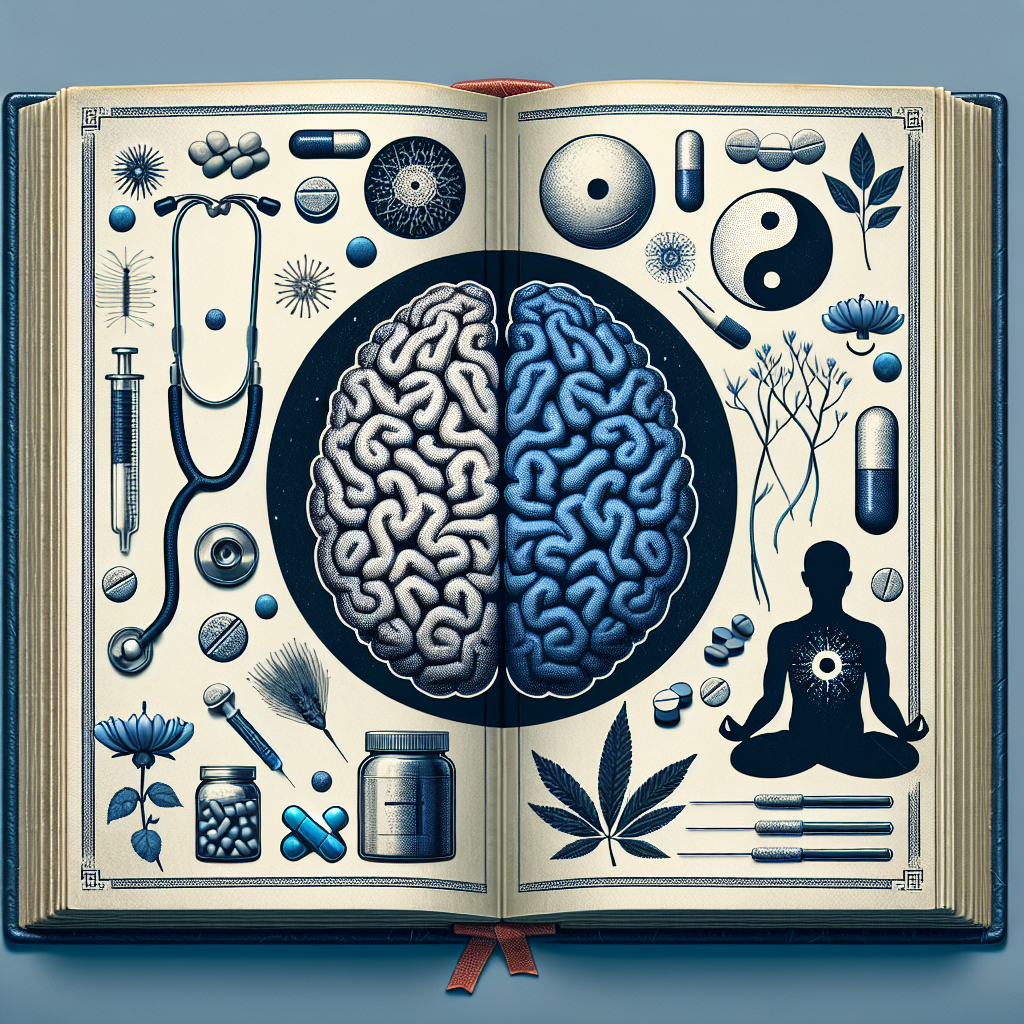Bridging Minds: Integrating Western Medical and Eastern Traditional Approaches in the Treatment of Dementia
Dementia, an umbrella term for a range of neurological disorders characterized by the progressive deterioration of cognitive function, poses a significant challenge to healthcare systems worldwide. As populations age, the incidence of dementia continues to rise, creating an urgent need for effective treatment strategies. Two predominant paradigms—Western medical and Eastern traditional approaches—offer contrasting yet potentially complementary solutions. This article delves into the treatment modalities of both frameworks, exploring how their integration may provide a more holistic approach to dementia care.
Understanding Dementia
Before diving into the treatment approaches, it is crucial to understand what dementia entails. Alzheimer’s disease is the most common form, accounting for 60-80% of cases, but other types include vascular dementia, Lewy body dementia, and frontotemporal dementia. Symptoms often include memory loss, impaired reasoning, language difficulties, and changes in behavior. While dementia is currently incurable, various treatments can slow its progression and alleviate symptoms.
Western Medical Approach
Pharmacological Treatments
The Western medical approach primarily focuses on pharmacological interventions. Medications like cholinesterase inhibitors (e.g., Donepezil, Rivastigmine) and NMDA receptor antagonists (e.g., Memantine) aim to manage symptoms and improve cognitive function. Cholinesterase inhibitors work by increasing levels of acetylcholine, a neurotransmitter associated with memory and learning, while Memantine regulates glutamate activity to prevent neuronal damage.
Non-Pharmacological Interventions
In addition to medications, non-pharmacological interventions are gaining traction. Cognitive Behavioral Therapy (CBT), physical exercise, and occupational therapy are employed to enhance cognitive function and improve quality of life. These interventions focus on stimulating the brain, maintaining physical health, and teaching coping strategies to manage daily tasks.
Diagnostic Tools
Advanced diagnostic tools like MRI, PET scans, and cerebrospinal fluid analysis play a crucial role in the early detection and monitoring of dementia. Early diagnosis allows for timely intervention, which can significantly slow disease progression.
Eastern Traditional Approach
Herbal Medicine
Eastern traditional medicine, particularly Traditional Chinese Medicine (TCM) and Ayurveda, employs a range of herbs believed to possess neuroprotective properties. For instance, Ginkgo Biloba is renowned for its potential to improve memory and cognitive function by enhancing blood flow to the brain. Similarly, Bacopa Monnieri, an herb used in Ayurveda, is believed to boost brain function and alleviate anxiety.
Acupuncture
Acupuncture, a staple of TCM, involves inserting thin needles into specific points on the body to balance the flow of Qi (energy). Studies suggest that acupuncture may improve cognitive function and reduce symptoms of agitation and depression in dementia patients. The treatment is believed to activate neural pathways and promote neuroplasticity.
Mind-Body Practices
Mind-body practices such as Tai Chi, Qigong, and yoga are integral to Eastern traditional approaches. These practices emphasize the harmonious connection between mind and body and are believed to enhance cognitive function, reduce stress, and improve overall well-being. Regular practice can help maintain physical health and mental clarity, which are crucial for managing dementia.
Dietary Interventions
Diet plays a significant role in Eastern traditional medicine. The principles of Ayurveda and TCM advocate for balanced diets tailored to an individual’s constitution. Foods rich in antioxidants, healthy fats, and anti-inflammatory properties are recommended to support brain health. For example, turmeric, a common spice in Ayurveda, contains curcumin, which has been studied for its neuroprotective effects.
Comparative Analysis
Holistic vs. Reductionist
Western medicine often adopts a reductionist approach, focusing on specific symptoms and targeting them with pharmaceutical interventions. In contrast, Eastern traditional medicine takes a holistic view, aiming to balance the body’s systems and promote overall well-being. While Western medicine excels in acute care and symptom management, Eastern practices are more preventive, emphasizing long-term health and harmony.
Evidence-Based vs. Empirical
Western medical treatments are rigorously tested through clinical trials and are evidence-based. This scientific approach ensures that treatments are safe and effective. Eastern traditional medicine, however, is often based on centuries of empirical knowledge and anecdotal evidence. While some herbs and practices have been validated through modern research, many remain under-studied.
Integration Potential
The integration of Western and Eastern approaches could offer a more comprehensive strategy for dementia care. For instance, combining pharmacological treatments with herbal supplements and mind-body practices could address both the symptoms and underlying imbalances. Moreover, acupuncture and dietary interventions could complement cognitive therapies, providing multifaceted support to dementia patients.
Case Studies and Real-World Applications
Several integrative healthcare centers are pioneering the fusion of Western and Eastern approaches. For example, the Cleveland Clinic’s Center for Integrative and Lifestyle Medicine employs acupuncture, herbal medicine, and mind-body practices alongside conventional treatments for dementia. Preliminary results indicate improved patient outcomes, reduced symptom severity, and enhanced quality of life.
In China, integrative hospitals routinely combine TCM and Western medicine. A study published in the Journal of Alzheimer’s Disease found that a combination of Donepezil and acupuncture resulted in better cognitive function and daily living activities compared to Donepezil alone. Such case studies highlight the potential benefits of a combined approach.
Challenges and Considerations
Despite the promising potential of integrative approaches, several challenges remain. Differences in regulatory standards, the need for more rigorous research on traditional practices, and potential interactions between pharmaceuticals and herbal remedies must be carefully considered. Moreover, cultural differences and varying patient preferences can influence the acceptance and effectiveness of integrative treatments.
Conclusion
As the global burden of dementia continues to grow, exploring and integrating diverse treatment modalities becomes increasingly important. Western medical and Eastern traditional approaches each offer unique strengths and limitations. By bridging these paradigms, healthcare providers can develop more holistic, personalized, and effective strategies for managing dementia. The future of dementia care may well lie in this integrative approach, where the best of both worlds converges to offer hope and healing to millions.

